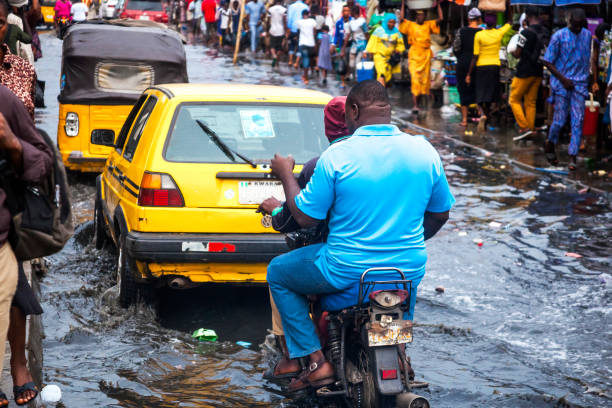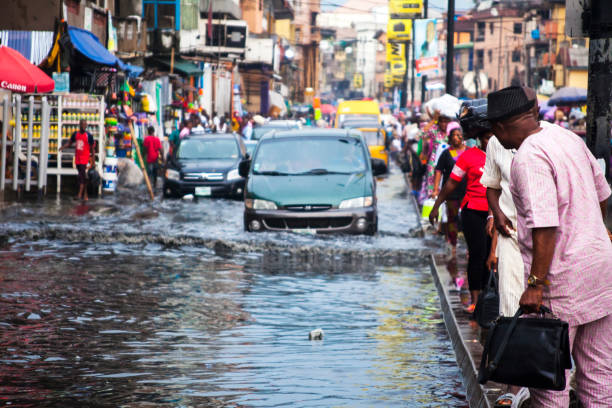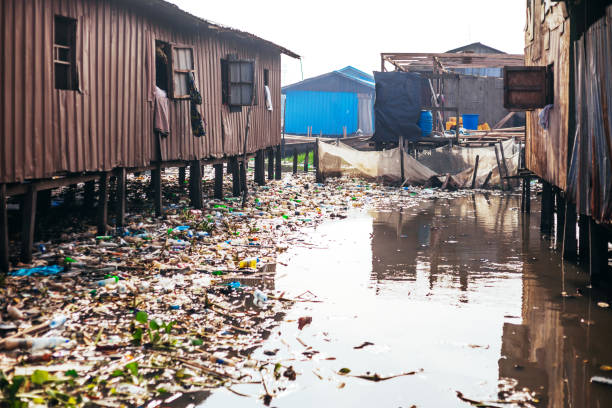Lagos, the economic and social hub of Nigeria, is prone to seasonal floods that cause significant damage to infrastructure and disrupt the lives of its residents. The effects of flood in Lagos are far-reaching, ranging from loss of property to displacement of families and communities.
In recent years, the frequency and severity of floods in Lagos have increased, highlighting the urgent need for comprehensive and sustainable solutions to mitigate the impact of floods.
Read on to find out the effects of floods in Lagos!
Issues Of Flood In Lagos
Flooding has been a significant concern and has negatively impacted Lagos, the biggest city in Nigeria. It boasts a bustling social and economic scene.
WATCH How Flood In Lagos Turns Residence Homeless / Eyewitness Experience From Lagos Flood
However, the city has a recurring issue of annual floods that cause widespread damage to properties and disrupt the lives of residents. It is imperative to comprehend the severity of the problem and strives towards implementing long-term solutions to minimize the damage.
iStockphoto
• Lack Of Drainage System
One major problem with the flood in Lagos, Nigeria, is inadequate drainage systems. Lagos is built on a low-lying coastal plain, and its drainage system needs to be equipped to handle the amount of rainfall it receives. The poor drainage system exacerbates the problem and causes water to accumulate on the streets, leading to flooding.
• Poor Sanitation Attitude Of Residents
Another issue contributing to flooding in Lagos is the poor sanitation attitude of the residents. With a high population density in Lagos, it is challenging to manage waste effectively. Many residents dispose of their trash indiscriminately, which clogs up drainages and exacerbates flooding during heavy rainfall.
iStockphoto
• Disposing Of Waste in Drainage
Residents sometimes deliberately dispose of waste in drainage as it seems the easiest way to get rid of it, but this results in a blockage of the drainages. It is necessary to educate residents on the dangers of clogged drainages to prevent flooding in the city.
Learn more about How Poor Drainage Destroys Your Environment.
• Government Insincerity In Finding Lasting Solutions
Despite the annual flooding occurrences, the government has yet to find a lasting solution to the problem. The government has relied on palliative measures, such as desilting gutters and canals, which only provide temporary relief. It is high time the government develops and implements long-term solutions to the problem.
Impact of Flooding In Lagos
The impact of flooding in Lagos is significant, and it affects every aspect of life in the city.
Some of the consequences of flooding in Lagos include:
1. Health Risks – Flood water contains bacteria, pathogens, and pollutants that can cause waterborne diseases. Residents risk contracting illnesses such as typhoid fever, cholera, and malaria.
2. Economic Loss – Floods destroy businesses and properties while disrupting commercial activities, leading to massive losses.
3. Infrastructure Damage – The flood destroys roads, bridges, and other essential infrastructures, making transportation challenging.
4. Displacement of People – Flooding often leads to people being displaced from their homes and communities, causing displacement, separation from loved ones, and a need for temporary accommodations.
iStockphoto
Closing Thoughts
Flooding is a significant problem in Lagos, Nigeria. The lack of an effective drainage system, poor sanitation attitude of residents, and government insincerity in finding lasting solutions are the major contributing factors to the problem.
It is necessary to educate residents on the dangers of poor waste management and implement long-term solutions to mitigate the impact of floods.
The government must tackle this challenge by providing and maintaining sustainable drainage systems and initiating urban planning and mapping to prevent the onset of the problem. With practical and viable solutions against the effects of floods in Lagos, Lagos can become a safer and more prosperous land.
©NigeriaCrime



